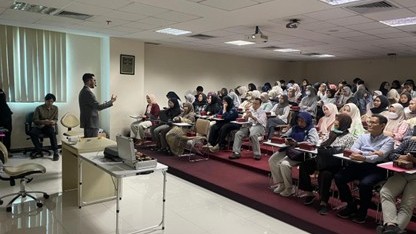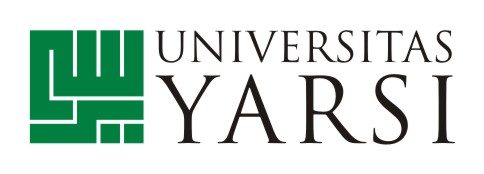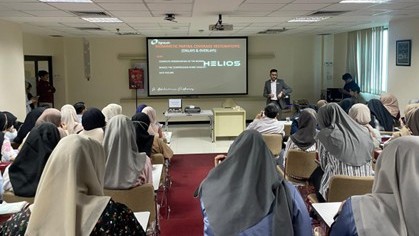The Faculty of Dentistry at YARSI University, in collaboration with Revoden Asia, conducted a guest lecture entitled “Introduction to Advanced Digital Dentistry” on July 16, 2025. This initiative was prompted by the significant transformation of digital technology in the field of dentistry, particularly in restorative practice, which enables diagnosis, treatment planning, and restoration fabrication to be performed with greater precision and efficiency. With increasing aesthetic and functional demands from patients and the necessity for evidence-based dentistry adoption, mastery of digital workflows has become an essential skill for modern dental practitioners. This program aligns with SDG 4 (Quality Education) and SDG 9 (Industry, Innovation and Infrastructure) through the enhancement of healthcare human resource competencies and the adoption of innovative technology in dental healthcare services.
The guest lecture was conducted with Dr. Abdul Rahman El Hawary from Egypt as the speaker, who possesses expertise as a Digital Restorative Dentist and Clinical Instructor with experience in product management and dental technology education. The activity lasted three hours with comprehensive materials including an introduction to CAD/CAM in dentistry, the history of digital dentistry, intraoral scanner selection, differences between optical impressions and conventional impression materials, as well as digital workflows in various restorative and prosthodontic scenarios. The implementation method combined theoretical presentation sessions with live demonstrations of Eighteeth Intraoral Scanner usage on dental models, implant models, and directly on patients, followed by interactive question-and-answer sessions to ensure comprehensive understanding among participants consisting of undergraduate students, dental profession students, and faculty members.

This activity successfully enhanced clinician competencies in understanding and implementing digital technology as well as partial restoration techniques comprehensively, providing participants with new knowledge regarding intraoral scanner usage that can be implemented in daily practice. Through strategic collaboration between educational institutions and the dental technology industry, this program not only supports SDG 3 (Good Health and Well-being) through the improvement of dental healthcare service quality but also strengthens SDG 17 (Partnerships for the Goals) in building effective partnerships to achieve sustainable development objectives. The success of this activity is expected to serve as a model for sustainable collaboration in facing the era of dental digitalization and producing competent healthcare professionals in accordance with current practice standards.


